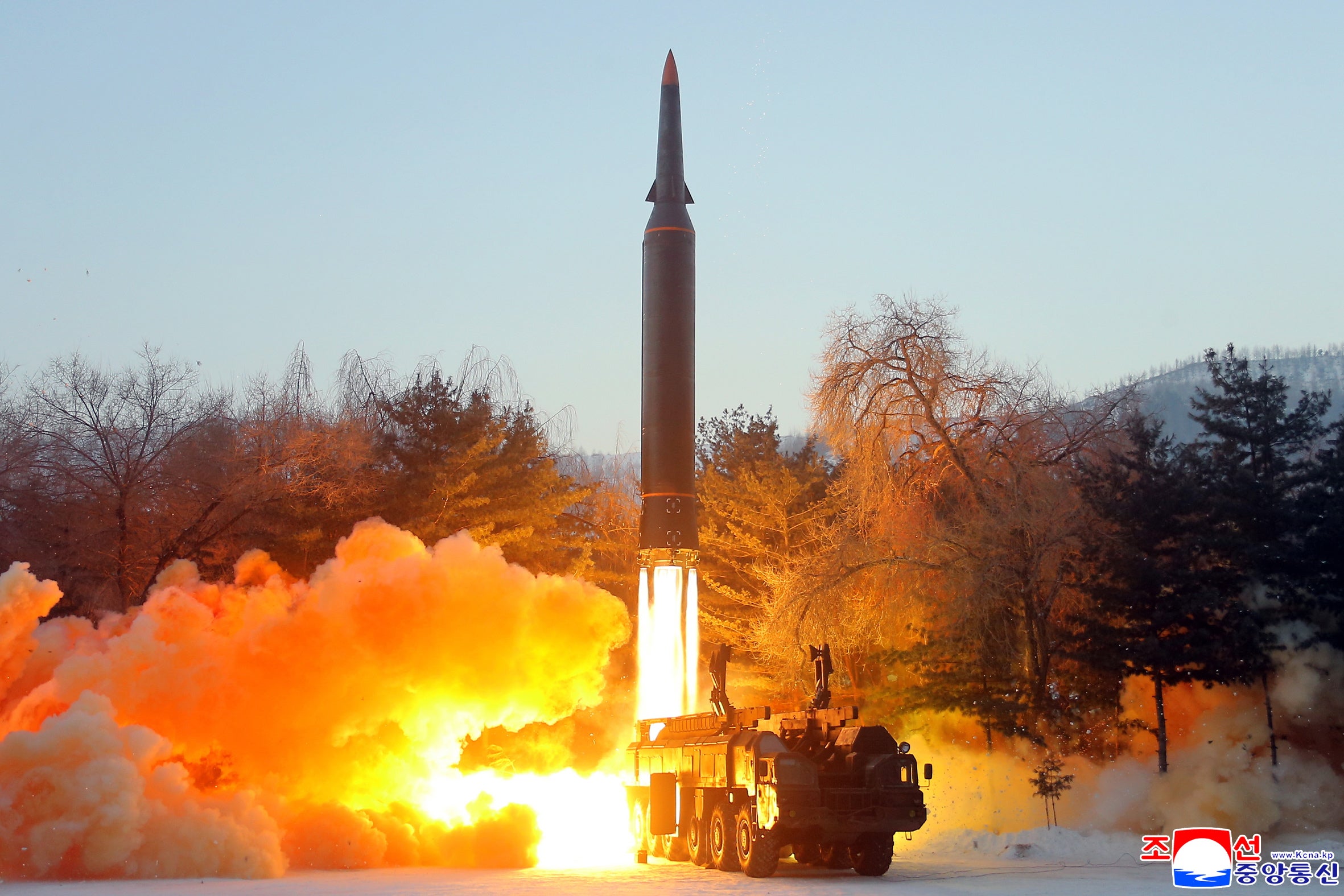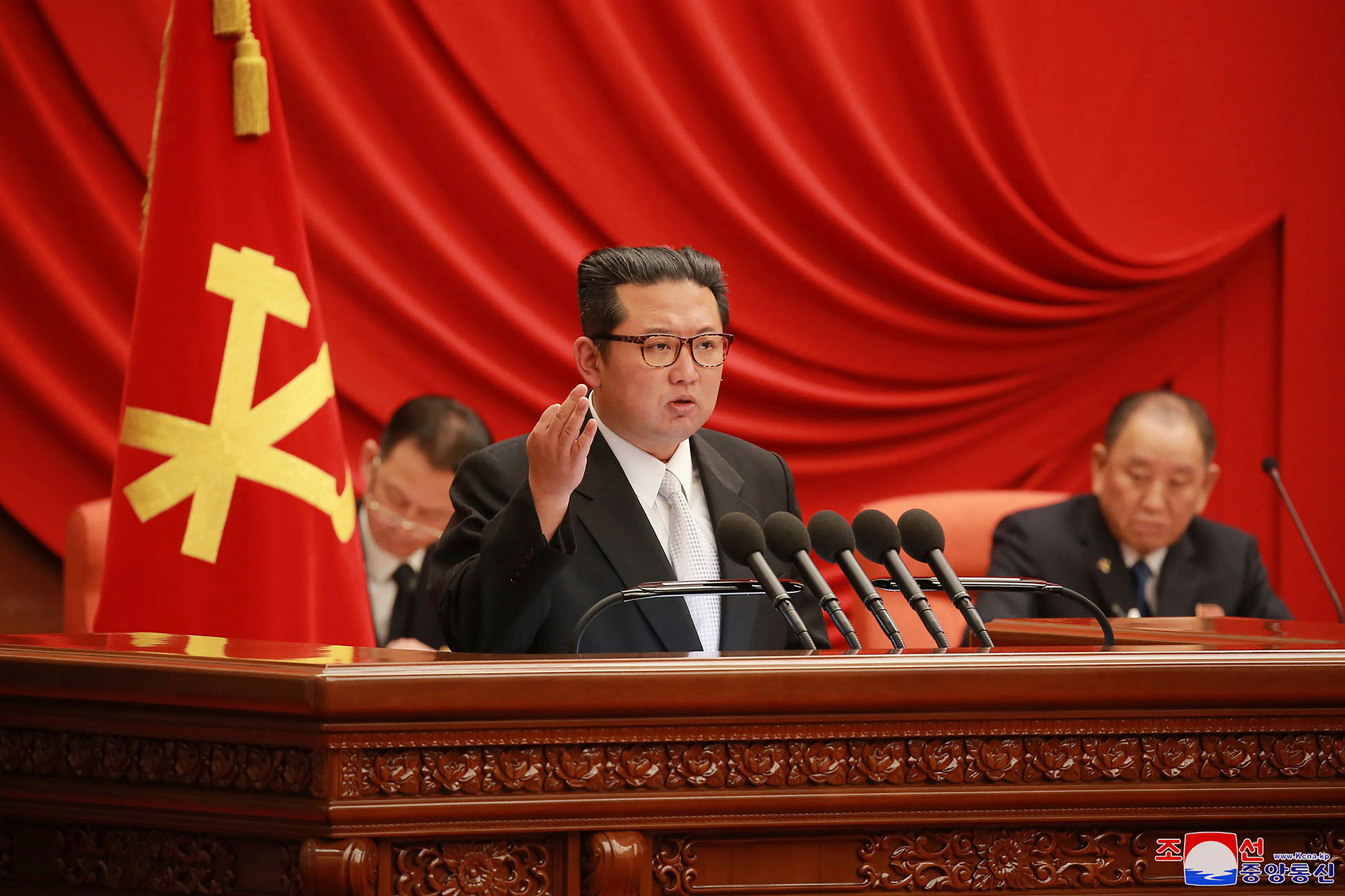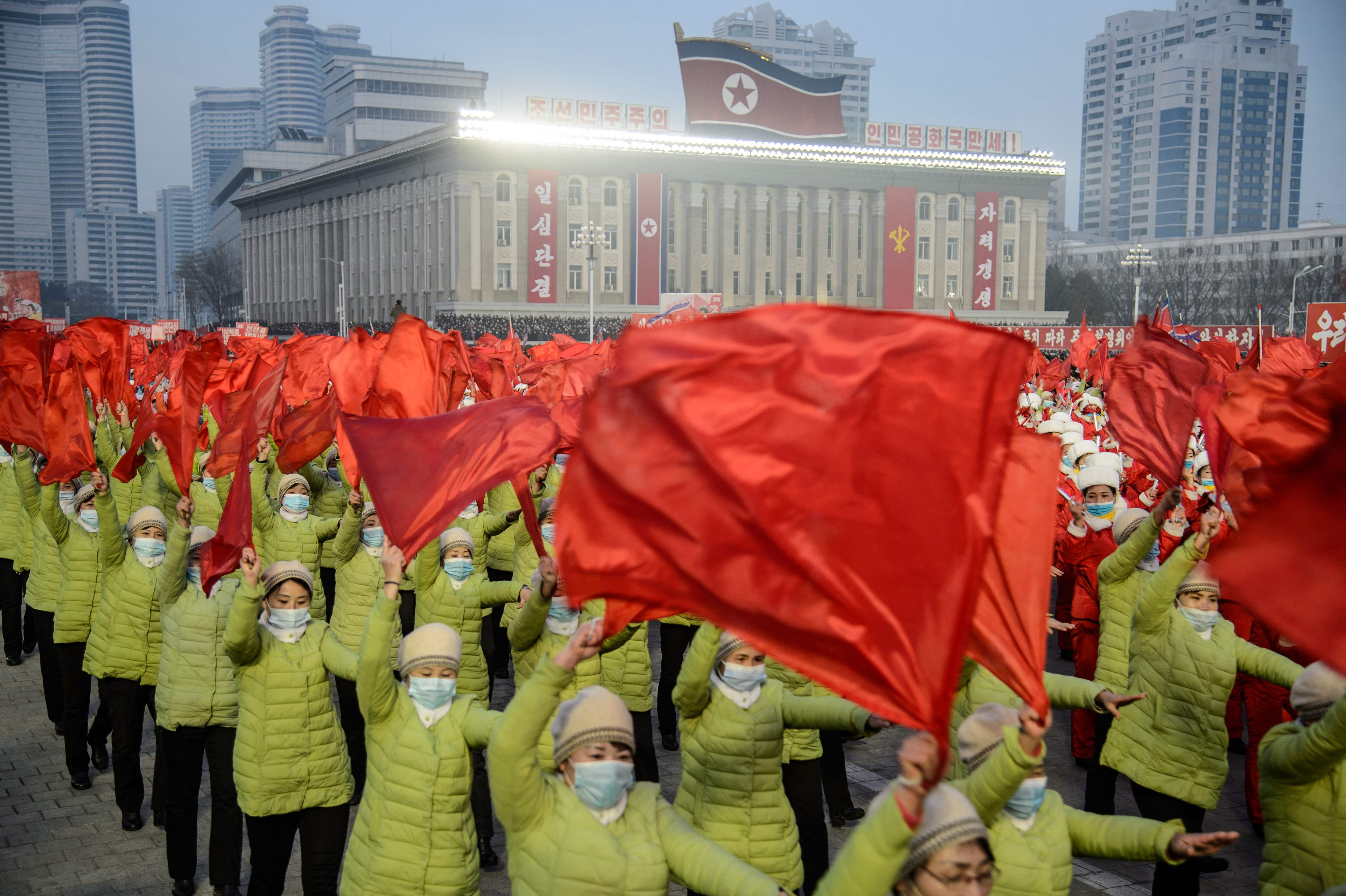Why Kim Jong-un’s missile barrage is a message for Joe Biden
The burst of recent tests reveal North Korea’s desperation to come out of international isolation, reports Ahmed Aboudouh


We are only one month into the new year, and North Korea has already blasted off seven missile tests. With the isolated country becoming ever more remote and its economy burned out by the pandemic, North Korean leader Kim Jong-un is on a mission to get Washington’s attention.
All of Pyongyang’s missile tests took place in January and reportedly included hypersonic testing missiles, short-range train-launched ballistic missiles and long-range cruise missiles. And at the weekend, North Korea fired a Hwasong-12 intermediate-range ballistic missile, its biggest missile test since 2017.
There is only one thing Kim has so far not authorised his troops to launch: intercontinental ballistic missiles (ICBMs) – a “red line” for the US.
The launches suggest Kim is frustrated that his country’s nuclear negotiations with the US have been put on the backburner since a dash of diplomatic interactions with President Donald Trump – the last was the February 2019 summit – failed to yield any desired breakthrough, such as an official declaration of the end of the Korean war.
“North Korea may be testing ballistic missiles to ensure that it also remains a priority for the Biden administration,” said Timothy Wright, defence and military research analyst at the International Institute for Strategic Studies.

Kim’s contentious bid to come in out of the cold takes place amid Biden’s busy diplomatic agenda. Since being sworn in last year, his aides have been laser-focused on the escalating competition with China, grappling with the economic ramifications of the Covid pandemic and Russia ratcheting up tensions with Ukraine.
North Korea’s demands that the sanctions against it be lifted first before resuming denuclearisation talks have also thrown a spanner in the works.
“Removal of sanctions is likely a goal for North Korea’s leadership, and it might be using missile tests to coercively demonstrate to US policymakers that they are not having their desired or intended effect,” Mr Wright said.
The US has initially responded to the missile launches strand by slapping a new set of economic sanctions on the North Korean regime. When the tests persisted, the US administration tried to rally its allies in the United Nations Security Council to impose more sanctions, but its efforts were thwarted by Russia and China.
Washington has called again on the UNSC to convene on Thursday to discuss Sunday’s fire test, which launched a missile potentially capable of reaching Guam, a key US military hub in the Pacific.
China has bolstered its position as North Korea’s economic lifeline in the middle of an alleged stifling economic crisis that heightened concerns among Kim’s senior lieutenants. Beijing has also become more accommodating to Pyongyang’s demands since tensions have been rising with the US throughout last year.
Kim has also supported Beijing in the face of western pressure related to China’s oppression of the Uyghurs minority in Xinjiang, the crackdown on democracy in Hong Kong and its increasingly pugnacious rhetoric towards Taiwan.
Analysts suggest North Korea’s growing dependency on China could be an insurance policy against testing the kind of ICBMs that could reach the continental US or other advanced nuclear technology that could enrage Washington.
Removal of sanctions is likely a goal for North Korea’s leadership
China would not allow Pyongyang to start a war on its borders, and despite their alliance, would see any nuclear breakthrough by North Korea as a direct threat to the power balance in the region.
It is also unlikely that North Korea would set off any new missile launches during the Beijing Winter Olympics that start on Friday. But, western diplomats are concerned about what could happen after the Olympic games.
Last year, Kim proposed a plan to upgrade the country’s weapons systems at the Eighth Workers’ Party Congress, where he emphasised the development of hypersonic missiles, which were fired on 5 and 11 January.
During a party meeting in January, North Korea announced it would organise massive national celebrations on 15 April to commemorate the 110th anniversary of Kim Il-sung, grandfather of Kim Jong-un and founder of North Korea. It would also celebrate the 80th birthday of his father, Kim Jong-il, on 16 February.
These events represent, according to diplomats and analysts, suitable grand occasions to launch an ICBM test.
An unnamed expert on North Korean affairs told Nikkei Asia that “Kim Jong-un is expected to carry out a massive event to connect ‘110 years, 80 years, 10 years’ – 10 years representing his own reign – as a way to underscore his legitimacy.”
In December 2012, then new leader Kim oversaw the Taepodong-2 long-range ballistic missile launching that provoked severe UN economic sanctions. And in 2017, Pyongyang twice sent off intermediate-range ballistic missiles over Japan and flight-tested ICBMs.

However, firing a more developed ICBM could be met with technical hurdles as well as a political cost since North Korea would abandon a moratorium signed in April 2018 that halted the country’s development and testing of ICBMs.
“North Korea’s success in developing solid fuels for some submarine-launched ballistic missiles (SLBM) designs demonstrate it can produce solid-fuel missiles. Developing a solid-fuel ICBM, however, will be a much greater technical challenge due to the complexity of producing multi-stage solid-fuel motors,” Mr Wright said.
On Sunday, South Korea’s president, Moon Jae-in warned Pyongyang could soon end the self-imposed moratorium on long-range ballistic missile and nuclear tests.
But Kim still has a window of opportunity to signal to the west that his intentions do not exceed seeking attention and returning to the negotiation table by refraining from launching ICBMs.
The recent escalation can be seen as a balancing act by North Korea, one aimed at sending a warning over prospects for future negotiations, but nothing further – and Pyongyang hopes that Biden gets the message.
Join our commenting forum
Join thought-provoking conversations, follow other Independent readers and see their replies
Comments
Bookmark popover
Removed from bookmarks